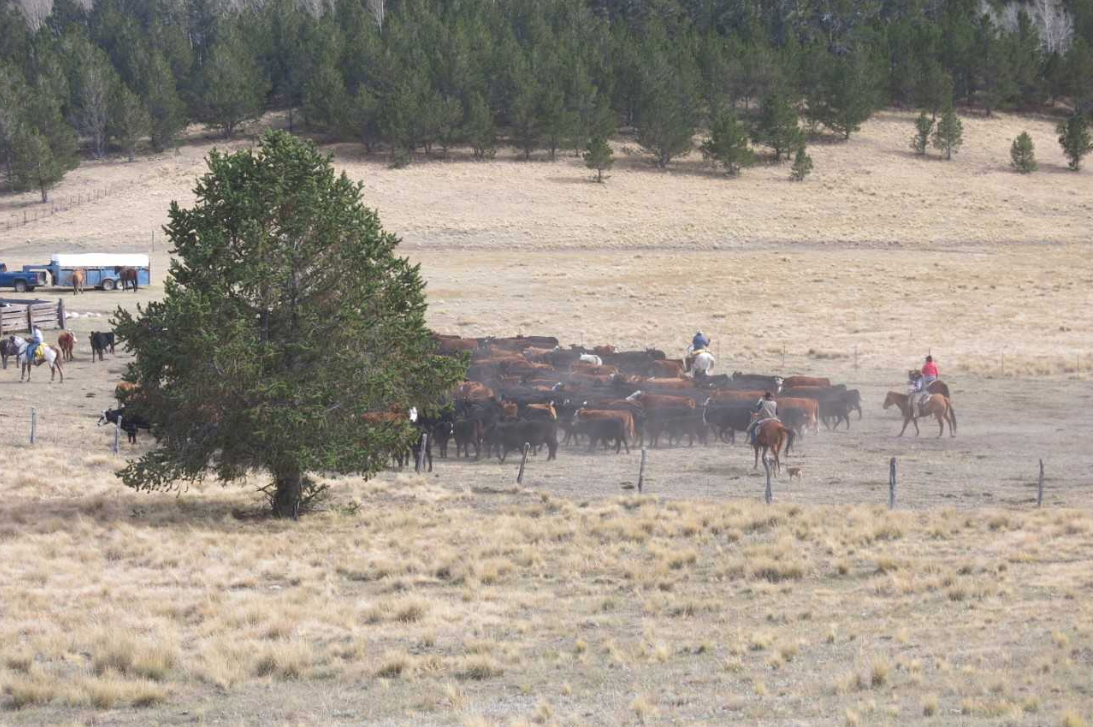By Toner Mitchell
Livestock grazing has always played a leading role in shaping the image, if not the substance, of America. Evidence is everywhere from the burger in your hand, the jeans covering your butt, possibly your favorite pro football team (“America’s Team”), to the truck you drive “til the cows come home,” even if you’re afraid to leave the pavement. Personally, I’m curious as to whether cowboy culture has sold more movie tickets or cigarettes.
In many ways, the evolutionary path of the entire world was drawn by the hand of the American rancher, especially in the last century. Producers of cattle and sheep contributed wool, leather, and meat to the planet’s two biggest wars. Might these contributions have caused these conflicts to end sooner than they otherwise would have? Might they have made the difference between winning and losing, when losing meant a victory for fascism?
It could also be argued that ranching has reduced America’s land into a shadow of its former, more productive, self. Most obvious are the impacts on the beauty of the landscape: forests rendered into pasture; grasslands turned to scrubby sage, cheatgrass, bare soil, and gullies; rivers dammed and diverted for the cultivation of alfalfa. The land’s resiliency has been greatly diminished by stripped topsoil, wetlands sucked dry, the loss of keystone predators and native plants, fires not allowed to burn, prairie converted to feed grain. Add historic land swindling and speculation, and we see the overwhelming degree to which our national interest has been subjugated to the interests and fortunes of ranchers.
An old story by now, many environmentalists wish that ranchers and their animals would just go away, a sentiment more than reciprocated by ranchers towards environmentalists. Neither side gives an inch, at least not willingly, and in most cases, certain actors don’t recognize victory unless it’s dressed as their opponents’ defeat. Prudent and mutually beneficial compromise is proposed and just as quickly is ignored. Meanwhile, the land continues to suffer and degrade, and families, after generations of living off the land, are ruined.
As the grazing wars grind along, it seems the paralysis of conflict has become the gravest threat to both the land and the people who view themselves as inseparable from it. I am one of the expanding tribe of the exhausted who believes that balancing supposedly non-consumptive land use with sustainable grazing is necessary, if only to show the two sides that striking such a balance is possible. Most important, however, is the importance of simply keeping people on the land.
In moments of pride and frustration, many of today’s ranchers rightfully claim to be the first environmentalists. On a family scale anyway – absent the extractive practices inherent in corporate ranching structures – a rancher has to feed this year’s crop with and eye towards the years that follow. His and her animals live off interest expressed in grass and water. Cutting into capital, i.e, the health of their private ranch and public allotment, starts them on a downhill trajectory that is likely to become irreversible in today’s capitalist world. More than ever, the responsible rancher must take care of the land to survive.
Easier said than done given agencies’ reduced stocking allowances (and budgets), the legacy of overgrazing, pressure from environmentalists, and land impacts of higher temperatures and lower precipitation. Nevertheless, ranchers who have chosen to stay in business have taken these challenges in stride and have remained successful through sustainable practice (in fact, TU’s wetland restoration projects owe much of their success to the wisdom of rancher stakeholders). More and more ranchers are earning the public’s support. Wherever possible, conservationists should do whatever they can to provide it.
Toner Mitchell is TU’s New Mexico Water and Habitat Coordinator. He lives and works in Santa Fe.



